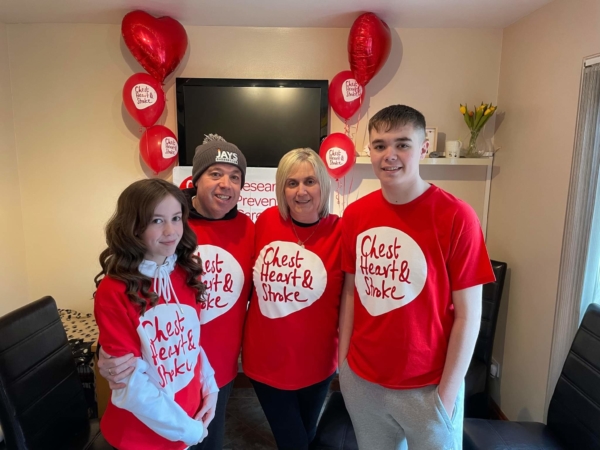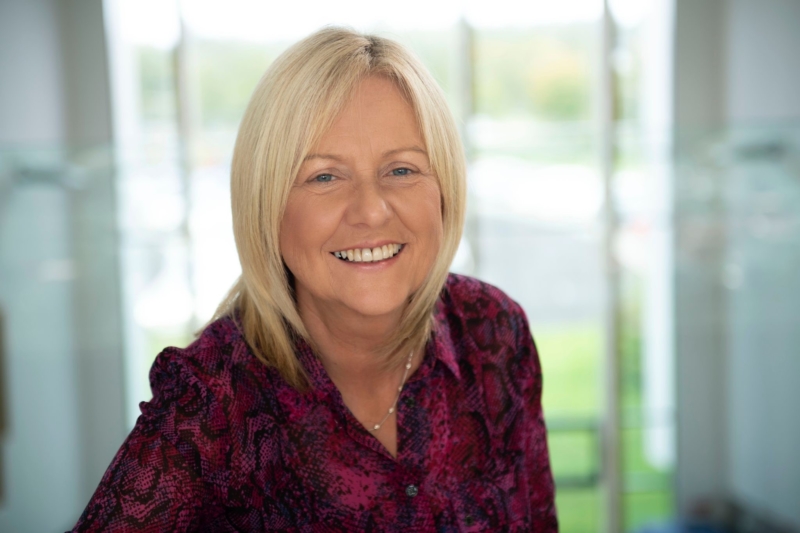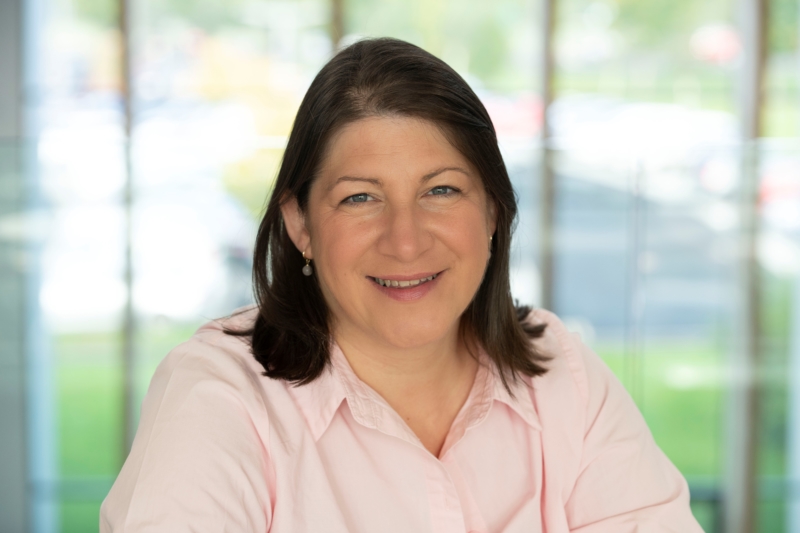
Today marks World Stroke Day and with 23% of deaths in Northern Ireland attributed to stroke, leading local health charity, Northern Ireland Chest Heart & Stroke (NICHS), is using the day to highlight the impact this often life-altering health event has here as well as the vital role it plays in helping stroke survivors.
Ursula Ferguson, Director of Care Services at NICHS explains, “Having a stroke is a life-changing reality for thousands of people in our local community every year and unfortunately almost two thirds of stroke survivors leave hospital with some sort of disability¹.”
“A stroke happens when the blood supply to part of the brain is interrupted in some way. If brain cells lose their supply of oxygen from the blood, they will be damaged or will die. The symptoms of a stroke depend on the part of the brain affected and the extent of the damage. No two strokes are the same and recovery is different from person to person.”
“As well as the negative impact on physical wellbeing, stroke can reduce independence, confidence and happiness. Stroke can also affect relationships, take away jobs and careers and render some families isolated within their own homes- but NICHS is here to help with expert care and support.”
“The help available from our Care Services team is extensive and includes family support, physical activity programmes, health education programmes, our Wellness Sessions, Young Stroke groups, a Return to Work programme and emotional support.”
“Our team works across Northern Ireland with people of all ages affected by stroke, alongside their families and carers. They are dedicated to supporting people in adjusting to life with a stroke condition, helping them to enjoy life to the full, re-engage with hobbies, and improve their confidence, independence and overall quality of life.”
“In 2021/2022 we helped 1,988 people affected by stroke through our Care Services. Our care pathway supports stroke survivors on their journey from hospital to home and beyond.”
“One of our programmes, PREP (Post Rehab Exercise Programme), supported 1,019 people last year. This unique programme is designed to provide additional support for stroke survivors after their statutory rehab has ended. Over 6 weeks, PREP participants go through a combination of education and physio-developed exercises. PREP plays a vital role in helping stroke survivors to rebuild their lives and gain confidence.”
Lisa Devine-Caldwell knows exactly how helpful PREP can be. Lisa, a Service Manager at a mental health charity, a wife and mum of two from Carrickfergus could never have imagined she would have a stroke at the age of just 46.
Lisa says; “On the evening I had my stroke I was making dinner when I just didn’t feel well. I had terrible pains in my head, my sight went in my right eye, my speech became disturbed, and I had right sided weakness. Thankfully my husband Pete had arrived home from work and rang an ambulance.”
Lisa was rushed to Antrim Area Hospital where after having CT and MRI scans she was diagnosed with having had a stroke.
“My world fell apart. How could this happen to me? I was devastated. The symptoms from the stroke were exhausting; I had constant headaches and chronic fatigue, and the anxiety I was experiencing was awful. I began having panic attacks due to the fear of having another stroke. I thought my life was over.”
When Lisa got home from hospital she was contacted by NICHS. Lisa explains; “I joined the PREP course which at that stage was running online due to COVID-19 restrictions. It was brilliant - we were able to talk openly about how our diagnosis has affected our daily living and how our lives had changed, we then worked on ways we could now help ourselves to manage these changes.”
“I was then offered the opportunity to join the charity’s Taking Control Self-Management online course too. It was amazing! We all understood what each other were going through. There was no judgment and the NICHS staff were fantastic. We made action plans and identified goals that we wanted to achieve, we discussed self-management, medication, fatigue and many other relevant topics. The one thing that really helped me was the mental body scan and deep breathing techniques. I use these techniques daily and they have really helped my recovery.”
“When I first attended the Taking Control group I thought of myself as a stroke victim. I now think of myself as a stroke survivor and the NICHS staff supported me every step of the way. I am so grateful for the support I have received from charity, they gave me hope when I didn’t have any!”
On 5th February, the first anniversary of having a stroke, Lisa organised a sponsored walk which saw her, and 30 family and friends complete a 5-mile walk in support of the charity. The walk raised an amazing £2,202 and Lisa says; “It was a strange day as it was exactly one year since my life changed forever. It was a day however to remember how far I have come with the support of family, friends and NICHS and to look to the future.”
NICHS’s Care Services clearly play a major role in the charity’s work but it is also focussed on trying to ensure fewer people develop stroke-related illnesses and that more people than ever survive them. One way it does this is through funding high quality, ground-breaking research in local universities and hospitals to advance the prevention, treatment and care of stroke conditions. Since 1994, NICHS has invested almost £8 million into research related to chest, heart, and stroke conditions.
A research project the charity is currently supporting is a study exploring whether Vitamin B2, also known as riboflavin, can lower blood pressure in people with a specific genetic variant. This study is particularly timely as the charity is currently running a blood pressure awareness campaign due to the fact 1 in 2 heart attacks and strokes are linked to high blood pressure.
Led by Doctor Diane Lees-Murdock and Professor Mary Ward, with a team from University of Ulster, the project is investigating how a supplement providing dietary levels of Vitamin B2 can lower blood pressure in genetically at-risk people. Doctor Lees-Murdock says; “We know that 10% of the population in Northern Ireland have a genetic variant which makes them susceptible to higher blood pressure. With this comes an increased risk of having a stroke.

Researcher Mary Ward

Researcher Diane Less-Murdock
“Our previous studies have shown that Vitamin B2 can lower blood pressure within this population and our current work aims to understand how this happens. We want to learn more about how this genetic variant influences blood pressure and find new ways to treat high blood pressure in genetically susceptible people.”
“We recognise the importance of NICHS’s current blood pressure campaign and its work to make the public more aware of the dangers of untreated high blood pressure and its association with stroke. Given the fact a recent international study found Ireland has one of the highest rates of high blood pressure, but some of the lowest levels of diagnosis and treatment², we hope our study can lead to potential new ways of treating this condition, and in turn, reduce the risk of stroke for this population.”
Ursula concludes, “This World Stroke Day we want to remind the public about the FAST acronym as this is vital for recognising the signs and symptoms of a stroke, which usually come on suddenly. FAST stands for:
F- Face- One side of the face is drooping
A – Arm- Arm weakness, the person cannot raise their arms
S – Speech- Difficulty speaking, slurred speech
T – Time- To call an ambulance and say it’s stroke
The sooner a potential stroke is recognised, and the faster medical help is sought, the better the chances of recovery are.”
“Furthermore, as a charity, almost 90% of our work, including our care and prevention services and research, is funded exclusively by public donations. These funds are essential in enabling us to continue to support the local community and provide life-changing services. Without the public’s generous support, we could not help people across Northern Ireland and we want to thank them for enabling us to be there for those who needs us.”
If you have been affected by stroke and need support visit www.nichs.org.uk/our-support-services/stroke for further information about NI Chest Heart & Stroke’s stroke support services.
Ends
For further information or to arrange an interview, please contact Nina Devine on 07971 542270 or NDevine@nichs.org.uk
